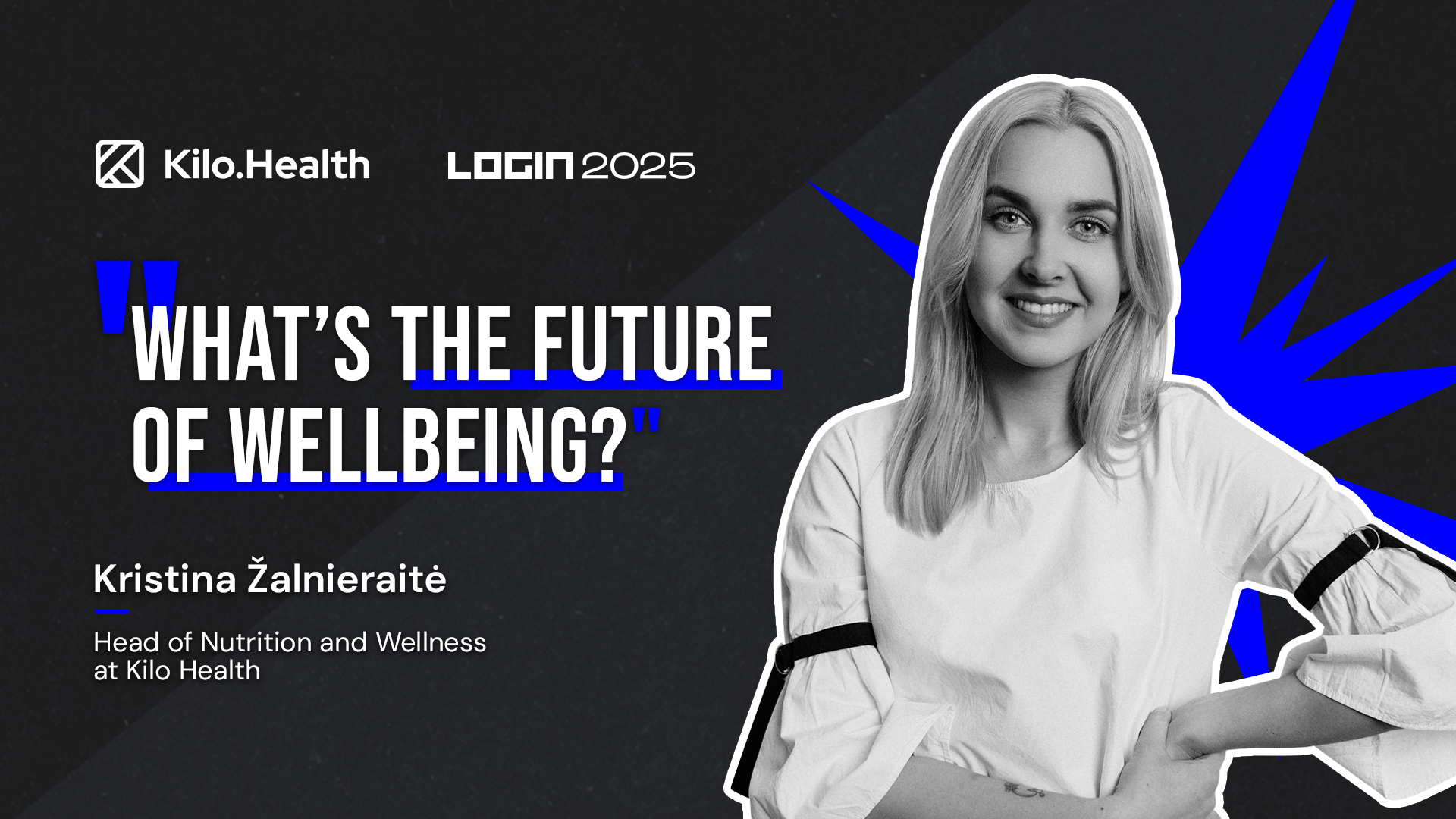

Imagine a world where technology creates a tailor-made meal plan and recommendations after analyzing different data about you. This is not science fiction but a reality that is fast approaching.
Traditional plans drawn up by nutritionists are already being replaced by personalized nutrition based on artificial intelligence, the latest scientific research, and constantly changing information about your body. And yet, while AI-based solutions promise a real revolution in wellness, technology will not yet replace nutritionists.
How artificial intelligence (AI)-based personalization works
Kristina Žalnieraitė, Head of Nutrition and Wellness at Kilo Health, licensed dietician and public health and food safety specialist, notes that everything is changing in today’s age of technology and AI, including our attitudes to eating and health.
AI and machine learning algorithms, based on research and analysis, make it possible to create personalized dietary recommendations for millions of people at once. Even more powerful are solutions that integrate data from a wide range of sources, from data collected by smart devices to genetic testing or analysis of gut microbiota. It leads to so-called algorithmic dietary recommendation systems that dynamically adapt to the changing needs of the individual consumer.
“Artificial intelligence is not limited to the information the consumer gives it. It can process multi-layered information and adapt recommendations quickly when integrated with various sources such as smart watches, sleep tracking apps, or physical activity apps. For example, some advanced systems can react to changes in sleep quality, reduced physical activity, or even seasonal factors, offering the user appropriate advice and personalized adjustments to their eating plan,” says K. Žalnieraitė.
She points out that AI may seem like a magic technology that can provide answers faster than any specialist, but its potential should not be overestimated. In healthcare, where every piece of advice can directly impact a person’s wellbeing, speed cannot precede accuracy and scientific validity.
“An algorithm only works as well as the quality and reliability of the data it is trained on. Therefore, inadequate, scientifically unsound, or erroneous algorithm training remains one of the main risks in the application of AI in health. Suppose AI relies on limited, biased, or scientifically unsound data. In that case, its recommendations may be inaccurate and harmful – especially when it comes to the health of individuals with chronic diseases or specific health needs,” says K. Žalnieraitė.
For the power of AI to be effectively and efficiently harnessed in the development of dietary plans and recommendations, a multidisciplinary team—healthcare professionals, researchers, data analysts, and IT experts—needs to be involved in the process. This is the only way to ensure that the recommendations provided by IoT systems are not only personalized but also scientifically sound.
“The use of AI in dietetics still requires careful human intervention. We need to constantly update training databases, draw on the latest research and analysis, and consider cultural and behavioral nuances that often determine whether a recommendation is correct and acceptable to the consumer,” says the health expert.
Nutrigenomics – the genetic key to personalized nutrition
The rising tide of digital personalization is also opening the door to still-emerging scientific fields such as nutrigenomics, which studies how diet affects gene expression (nutrigenomics) and how genetic differences between people determine individual reactions to food components (nutrigenetics). According to K.Žalnieraitė, although the field is still in its infancy, its potential is enormous thanks to the digitalization of personalized nutrition.
“This is no longer just a theoretical consideration – the first examples of its application are already making their way into digital health platforms and mobile apps. Several genes have variations that determine how the body absorbs specific vitamins, metabolizes fats, or responds to carbohydrates. In this case, the genetic test becomes an additional tool to help avoid bad decisions and guide toward the choices that best suit the biological needs of the individual.
For example, the detection of genetic variation associated with lower absorption of B vitamins (e.g., polymorphisms in the MTHFR gene) may justify recommending the inclusion of foods richer in these vitamins in the diet or appropriate supplementation. The more we know about individual genetic differences, the more accurate we can be in designing personalized dietary strategies. This marks one of the most critical milestones in the evolution of customized nutrition,” she explains.
Although the first steps in nutrigenomics have already been taken, the field needs further development based on high-quality research. AI will play a key role in this field, not only in processing large amounts of data but also in modeling and identifying complex relationships between genotypes, dietary habits, and health outcomes.
Healthcare specialists will not be replaced yet
In today’s reality, AI-based dietary solutions promise a real revolution in wellness. However, alongside technological advances, ethical and practical challenges need to be considered in terms of data protection, recommendation accuracy, and maintaining a human role in decision-making.
“Nutrition is not just about calories or nutrient balance. It is also a daily ritual, a cultural identity, a form of communication, and an emotional support. Will an algorithm understand and appreciate the multi-layered nature of this process? Eating is an important part of our lifestyle and social relationships, so training AI to deal with these aspects is one of the biggest challenges,” says K. Žalnieraitė, Head of Nutrition and Wellness at Kilo Health.
She points out that there is no shortage of other challenges these days. For example, AI cannot yet fully understand complex clinical cases—drug interactions, autoimmune diseases, specific metabolic disorders, etc. Therefore, personalized digital nutrition should not be seen as a substitute for the advice of dieticians or nutritionists but as an additional smart tool to support and enhance the work of professionals.
“Artificial intelligence will not replace health professionals. Trust in technology should be rational and based on a healthy critical appraisal of the individual. We actively work with research organizations to develop mobile apps and new products, analyze user feedback, and continuously improve our professional knowledge. But AI also opens up many new opportunities,” adds K. Žalnieraitė.
Research shows that consumers who use AI tools are more likely to stay motivated in the long term – for example, they stick to a meal plan for longer and feel more engaged in their wellbeing and changing their habits. This effect is due to the ability to monitor progress in real time and receive personalized advice that provides clarity and reinforcement. Thus, AI can not only be a facilitator for the consumer but also a valuable tool for wellness professionals to maintain patient engagement and motivation between consultations, working together towards a common goal.
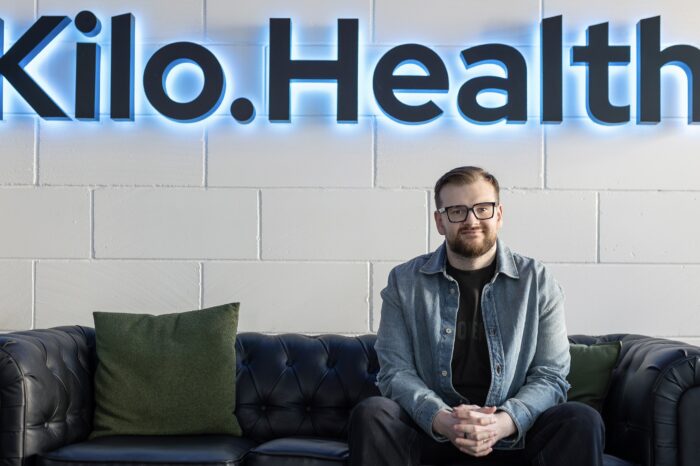
Kilo Health concluded 2024 on a strong note, achieving stable revenues and growth, alongside a team of 450 employees. In 2024, the company’s consolidated revenue remained steady at €234 million, the same as in 2023. Despite external market challenges, Kilo…
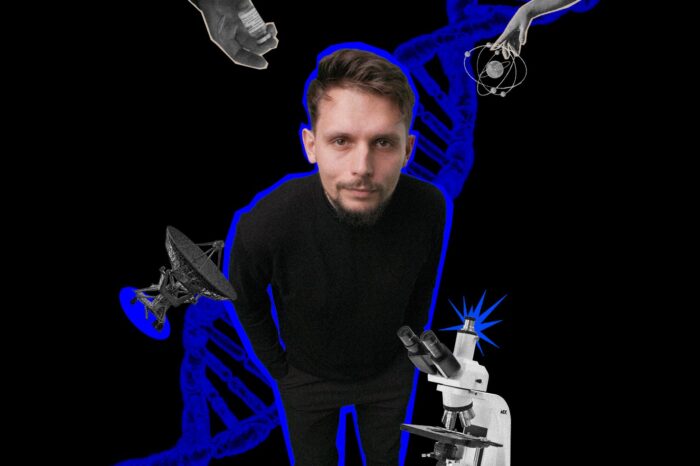
Ask, research, support. These three words sum up my role — or maybe just the nerd face emoji. Currently, I am working as a Scientific Research Lead at Kilo Health. But before that, I’ve always been on a similar path,…
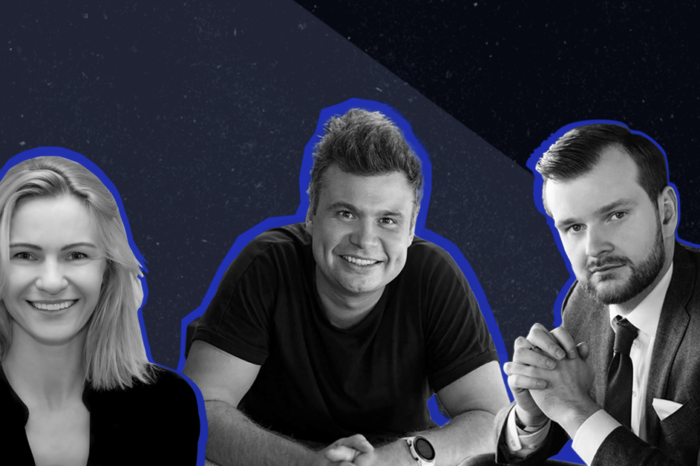
As we’re entering an exciting new chapter of business growth and leadership, it’s the perfect time to catch up on the latest changes in our team and where we’re headed next. Dive in and get to know our new CEO…

I’m Matas, and when asked, I refer to myself as an intern — always learning. However, research, strategy, business development, and idea generation are the cornerstones of my work. I want to pull back the curtain and give you an…
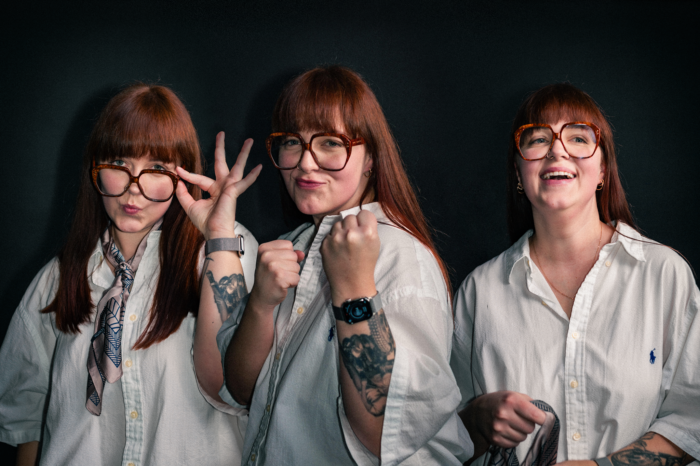
I’m Deimante, currently Head of Marketing at Kilo Health, and a big lover of this company. My journey to being hired at Kilo has been quite the ride. How it all started? I underwent interviews with 11 different people and…

Ever dreamt of taking the lead, even if the path isn’t crystal clear? Or to have someone believe in you and offer you a chance to figure out whether you would thrive in a startup environment? Speaking of which, Kilo…
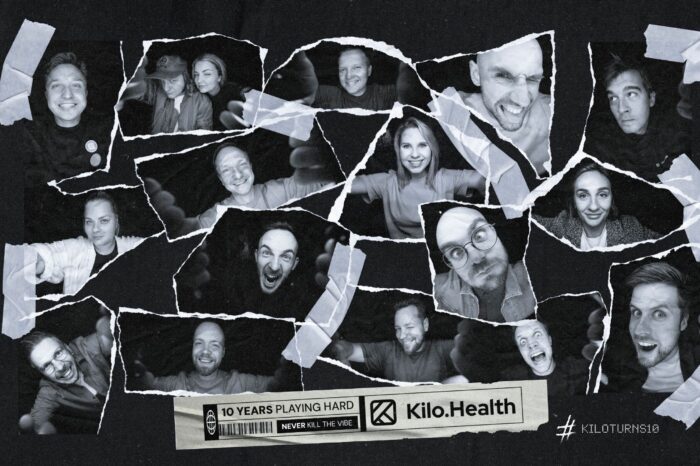
A whole decade has raced by in the blink of an eye for us at Kilo Health, and what better way to celebrate than to reflect on the milestones and lessons over the years? Do you know where we started?…
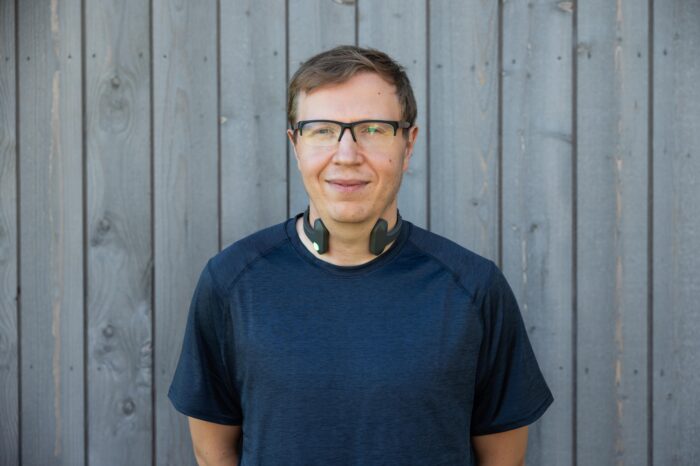
We, the co-founders, are just ordinary individuals with grand ambitions. There are times when we work twice as long and intensely as others, yet we’re equipped with the same amount of daytime, energy, and capacity. However, as leaders in the…

There’s no enchanting tale behind how I became a part of Kilo Health. In truth, some of us regular folks simply have regular journeys, and that’s perfectly fine. What counts is that today, I hold a successful product in my…

Reflecting on your achievements from the previous year is advantageous. That’s exactly what we did, proudly demonstrating our boundless aspirations through an impressive 84% growth and 213 million euros. So let’s put our hands in the air and celebrate together,…
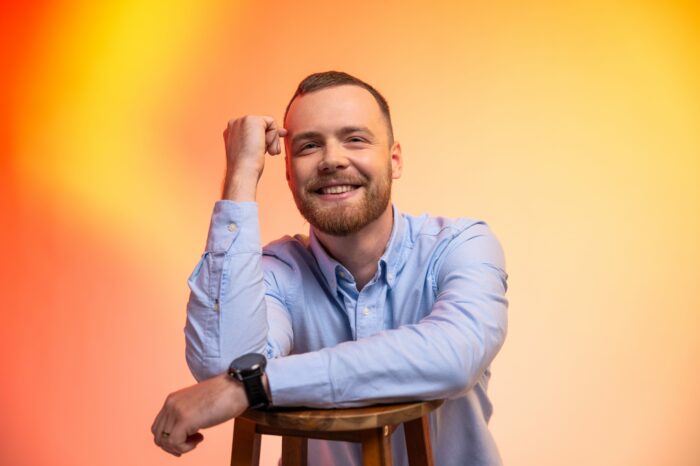
I joined Kilo Health back in 2019, and I can prove that when people’s values and mindsets align, great things can be accomplished, even if you don’t have a plan. BoomeranGO!, the first and only product for children provided by…
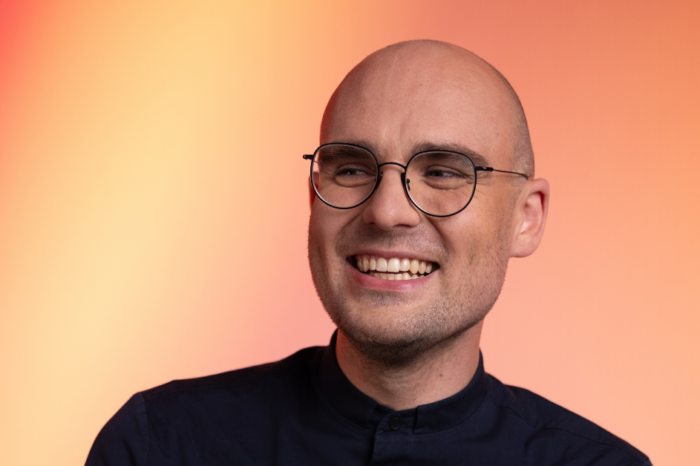
Lighting, sound, set, and actors are essential components of a film studio, but they are not the sole factors that define its success. Consistent creativity, appreciation of talent, and adaptability to market trends are a few of the things that…

Hey, I’m glad you’re here — I’m Viktorija Jokantaite-Kutke, the CEO of the Weight Management Accelerator at Kilo Health. One thing about me is that I don’t do boredom. I am always moving, always building. Try to keep up! When…